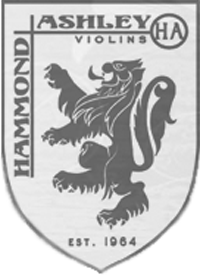Westerlies Records, February 2024
BY PAUL DE BARROS
Back when Washington Middle School trumpeter Riley Mulherkar announced himself to the world one afternoon in Bellevue with a crackerjack solo on Duke Ellington’s “The Mooche,” it seemed like a good bet he was a budding young star. But who knew his debut album as a leader 18 years later would be so daring and original? You no doubt already know his ensemble work with The Westerlies, but here he presents himself as lonely trumpeter in an unpredictable sonic world that talks back in the language of electronics – reverb, choruses, and thrumming beats – thanks to sound artists Rafiq Bhatia and Chris Pattishall – as well as that of a more traditional acoustic piano trio (Pattishal, piano; Russell Hall, bass; Kyle Poole, drums). Moving from intense close-ups highlighting his very intakes of breath (kind of like those guitar records where you can hear fingertips scraping the strings) to wide panoramas of a far-off horizon or open sky, Mulherkar places jazz fundamentals – blues, work song, bebop, Jelly Roll, free, Gershwin, Hoagy – into a carefully sculptured and personal world. Nine tracks, 35 minutes. Quite a bold and succinct tour de force.
None of this would be possible, of course, were it not for Mulherkar’s golden gourd of a sound, which he uses in a manner that reflects the influence of Wynton Marsalis – the way he pressure-pushes up to a high note, for example – but also Dave Douglas – greasy squeezes, jaunty hops, whimsical turns. Add a little Jon Hassell reverb and you’ve a one big world of trumpet.
It’s possible to hear the album as engaging pairings. The opener, “Chicken Coop Blues,” goes down nicely with the work song, “No More.” The first can be heard as a minimalist statement of purpose, if you will, that answers a simple question, “What is jazz?” with a simple answer, “Blues feeling and a beat.” “No More” digs deeper, with a vocal assist from Vuyo Sotashe, whose affecting moan gets answered by a slamming sledgehammer that becomes an industrial clank. Another pair: “Looking Out,” with swells and ebbs of slo-mo piano, suggests staring out the window on a snowy day. “Looking Up” feels more like a contemplative but maybe a little anxious gaze at the sky. How about Hoagy and George? “Stardust,” tender and gentle, on both Mulherkar’s and Pattishall’s part; and “Honey Man,” from Porgy and Bess, clarion tone suddenly beset by an electronic storm.
There’s probably also some kinship, at least in terms of daring-do, between the nervous repetition and call and answer of Riley’s “Ride or Die,” and the aptly named “Hopscotch,” which slides into chopsy and energetic free play. That leaves Morton’s “King Porter Stomp,” which starts out acoustically jaunty but, in the shout chorus, transforms into a wild and wonderfully plinking electronic soundscape.
Bravo, Riley! You’ve come a long way from “The Mooche,” but even back then we guessed you had it in you. What a treat to have watched you bloom!





